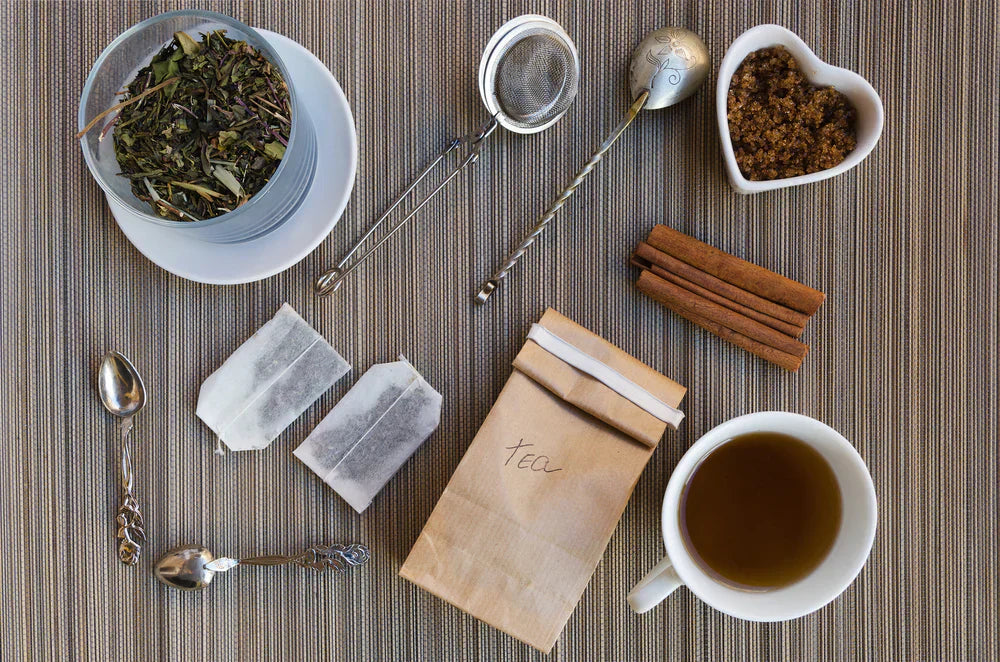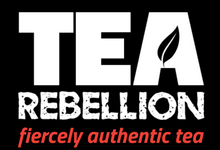
Bagged Tea vs Loose Leaf Tea: The Ultimate Showdown
The debate between bagged tea and loose leaf tea continues to divide tea lovers. Both offer unique advantages, but which truly delivers the best experience? In this comparison, we’ll explore key differences in flavor, quality, and convenience. Whether you're a fan of the quick brew or a connoisseur seeking full-bodied flavor, understanding the pros and cons of each can enhance your tea ritual. Grab your cup and join us on a journey to discover which tea type deserves the crown.
Taste Test
Are you a tea aficionado looking to settle the age-old debate between bagged and loose leaf tea? Join us as we delve into the world of tea tasting and conduct a flavor comparison between the convenience of bagged tea and the authenticity of loose leaf tea. In this blog section, we will explore the differences in aroma, taste, and overall experience when brewing these two tea varieties side by side. Get ready to elevate your tea-drinking experience and discover which type reigns supreme in the battle of the brews.
When it comes to tea, the debate between bagged and loose leaf has been ongoing for years. Bagged tea offers convenience and a quick brewing process, but does it sacrifice quality? On the other hand, loose leaf tea is known for its superior taste and aroma, but is the extra effort worth it?.
Aroma plays a crucial role in the overall tea-drinking experience. Bagged teas often contain broken tea leaves, which can impact the aroma. In contrast, loose leaf teas typically retain more essential oils, resulting in a more fragrant brew. During our taste test, we will pay close attention to the aromas released by each type of tea and how it influences our perception of flavor.
Moving on to taste, the quality of the tea leaves used directly affects the taste of the final brew. Bagged teas may contain fanning's or dust or simply be more stale, which can lead to less flavourful and bland tastee. Loose leaf teas, with their whole leaves, offer a more nuanced and complex flavor profile. We will evaluate the taste characteristics of both types of tea, from the initial sip to the lingering aftertaste.
Lastly, the overall experience of preparing and enjoying a cup of tea can vary between bagged and loose leaf varieties. The ritual of brewing loose leaf tea, from measuring the leaves to watching them unfurl in hot water, adds a sense of mindfulness to the process. Bagged tea, while convenient, may lack this immersive experience. We will explore how the brewing methods impact the satisfaction derived from each cup of tea.
The choice between bagged and loose leaf tea ultimately depends on personal preference and priorities. Whether you value convenience or crave a more authentic tea-drinking experience, there is a type of tea for everyone. Stay tuned as we conduct our taste test and unravel the mysteries of the tea world. Get ready to take your tea journey to new heights!.
Health Benefits
- Green Tea: Exploring the Antioxidant Properties
- Black Tea: Understanding its Role in Heart Health
- Herbal Tea: Unveiling the Calming Effects
- White Tea: Examining the Anti-Aging Benefits
- Oolong Tea: Boosting Metabolism and Weight Management
- Rooibos Tea: Enhancing Digestive Health
- Peppermint Tea: Soothing Digestive Discomfort
- Chamomile Tea: Promoting Better Sleep
When it comes to tea, each type offers a unique set of health benefits that can positively impact your overall well-being. In this section, we delve into the potential advantages of different tea varieties, from green tea's powerful antioxidants to black tea's contributions to heart health. Herbal tea's calming effects, white tea's anti-ageing properties, and oolong tea's metabolism-boosting abilities are also worth exploring. Furthermore, rooibos tea is known for enhancing digestive health, while peppermint tea is excellent for soothing digestive discomfort. Additionally, chamomile tea is renowned for promoting better sleep and relaxation. By understanding the diverse health benefits associated with each type of tea, you can make informed choices to support a healthier lifestyle and tailor your tea selection to meet your specific wellness needs.
Tea has been consumed for centuries not only for its taste but also for its potential health benefits. Green tea, for example, is rich in antioxidants such as catechins, which have been linked to a reduced risk of chronic diseases. Black tea, on the other hand, contains compounds like theaflavins and thearubigins that may help lower cholesterol levels and support heart health. Herbal teas, made from a variety of plants and herbs, offer a range of benefits depending on the ingredients used. Many herbal teas are caffeine-free and can aid in relaxation, digestion, and even immune support. White tea, minimally processed and delicate in flavor, is praised for its anti-ageing properties due to its high antioxidant content. Oolong tea, partially fermented, combines the benefits of green and black tea, potentially aiding in weight management by boosting metabolism. Rooibos tea, a caffeine-free herbal tea from South Africa, is rich in antioxidants and may support digestive health. Peppermint tea, known for its refreshing taste, can help alleviate digestive issues like bloating and indigestion. Lastly, chamomile tea, with its mild floral taste, is a popular choice for promoting relaxation and sleep due to its calming effects.
Incorporating a variety of teas into your daily routine can offer not only a delightful sensory experience but also a host of health benefits. Whether you choose green tea for its antioxidant properties, black tea for heart health, herbal tea for relaxation, white tea for anti-ageing benefits, oolong tea for metabolism boost, rooibos tea for digestive support, peppermint tea for digestive comfort, or chamomile tea for better sleep, each cup can contribute to your overall well-being. By exploring the diverse world of teas and their associated health advantages, you can elevate your tea-drinking experience and nurture your body and mind with every sip.
The debate between bagged tea and loose leaf tea ultimately comes down to personal preference. While bagged tea offers convenience and ease of use, loose leaf tea provides a more authentic and flavorful tea-drinking experience. Whether you choose the convenience of bagged tea or the quality of loose leaf tea, the most important thing is to enjoy the ritual of making and savoring a delicious cup of tea that suits your individual taste preferences.
